- Couples in China are now allowed to have three children, up from two before.
- This is because its ageing population is growing, whilst its birth rate is slowing.
- If China’s population starts to decline, sugar consumption could follow suit.
China’s New Three-Child Policy
- China recorded 12 million births in 2020, marking a drop for the fourth year running.
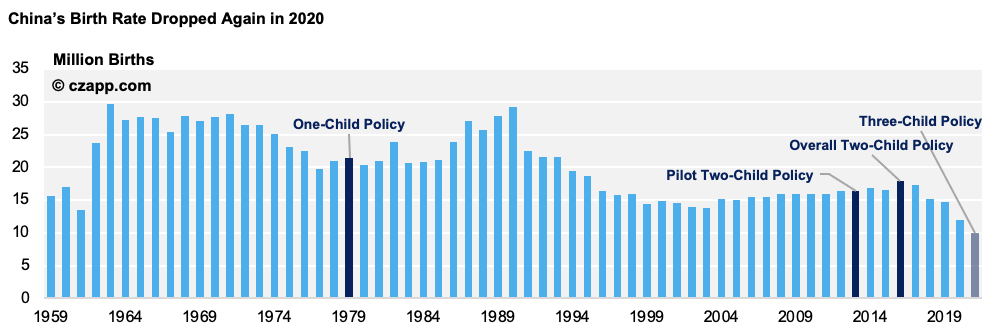
- The Government’s therefore announced that couples can have three children, in attempt to address concerns regarding its ageing population and slowing birth rate.
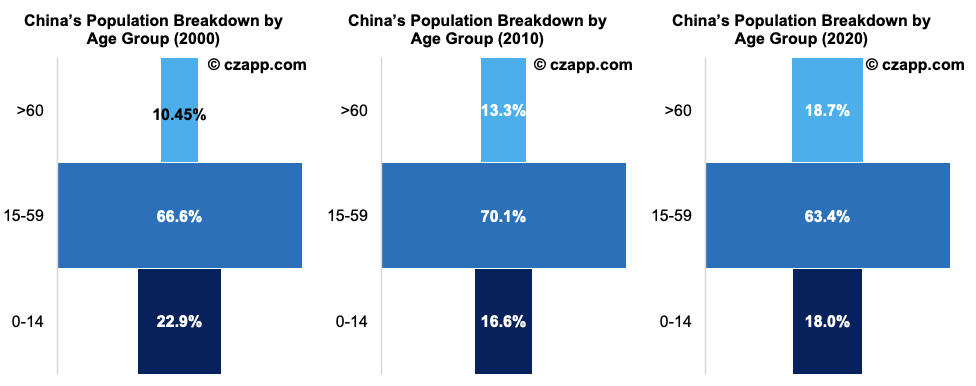
- However, it’s not guaranteed this policy change will speed up population growth.
- Five years ago, the Government told couples they could have two children, but this didn’t bring as many newborns as anticipated.
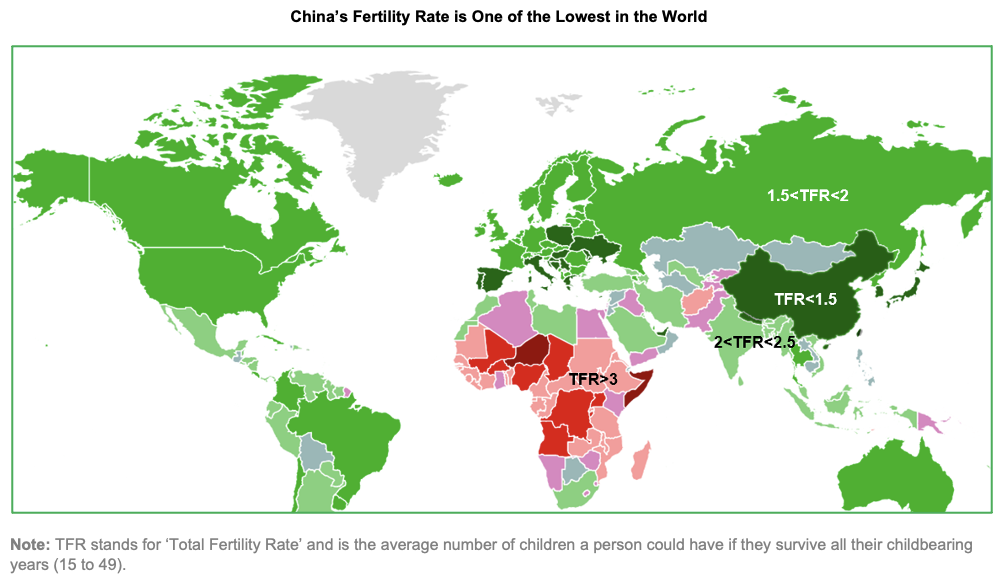
What Does China’s New Policy Mean for Sugar Consumption?
- In theory, China’s sugar consumption should grow in line with its population and economic growth.

- However, if China’s population falls in the coming years, sugar consumption could follow suit.
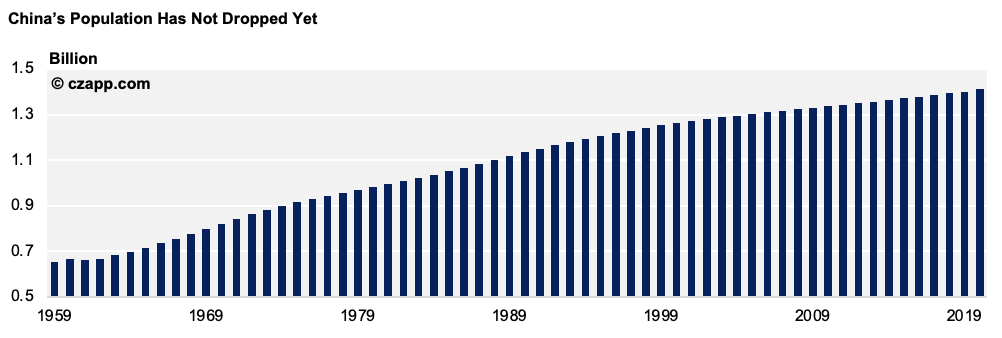
- Low fertility rates lead to an elderly population, which tends to consume less sugar for health reasons.
- This may also mean China’s consumption of sugar alternatives continues to rise.

Some Positives: Urbanisation and a Growing Economy
- Although China’s population growth remains an area of uncertainty, we think sugar consumption will grow in the next five years.
- This is because urbanisation has increased peoples’ access to sugary food and beverage products.
- And, as China’s average income continues to grow, more will be able to justify buying these products.

- However, its per capita consumption should remain one of the lowest in the world.
- This is because China’s home to very rich and very poor provinces, meaning consumption trends wildly differ across regions.
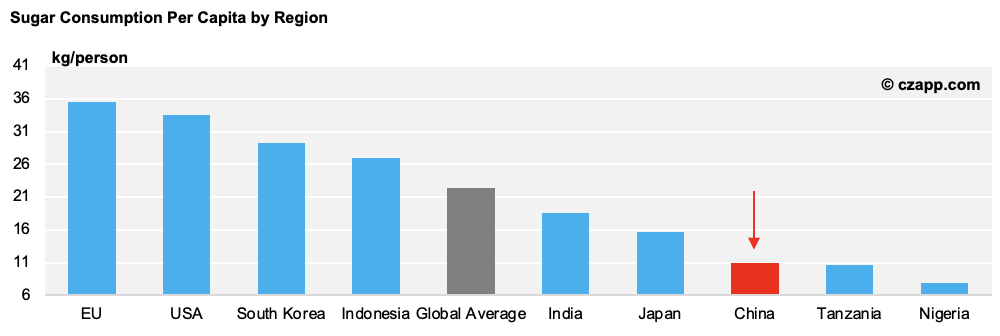

Other Opinions You Might Be Interested In…
Explainers You Might Be Interested In…















